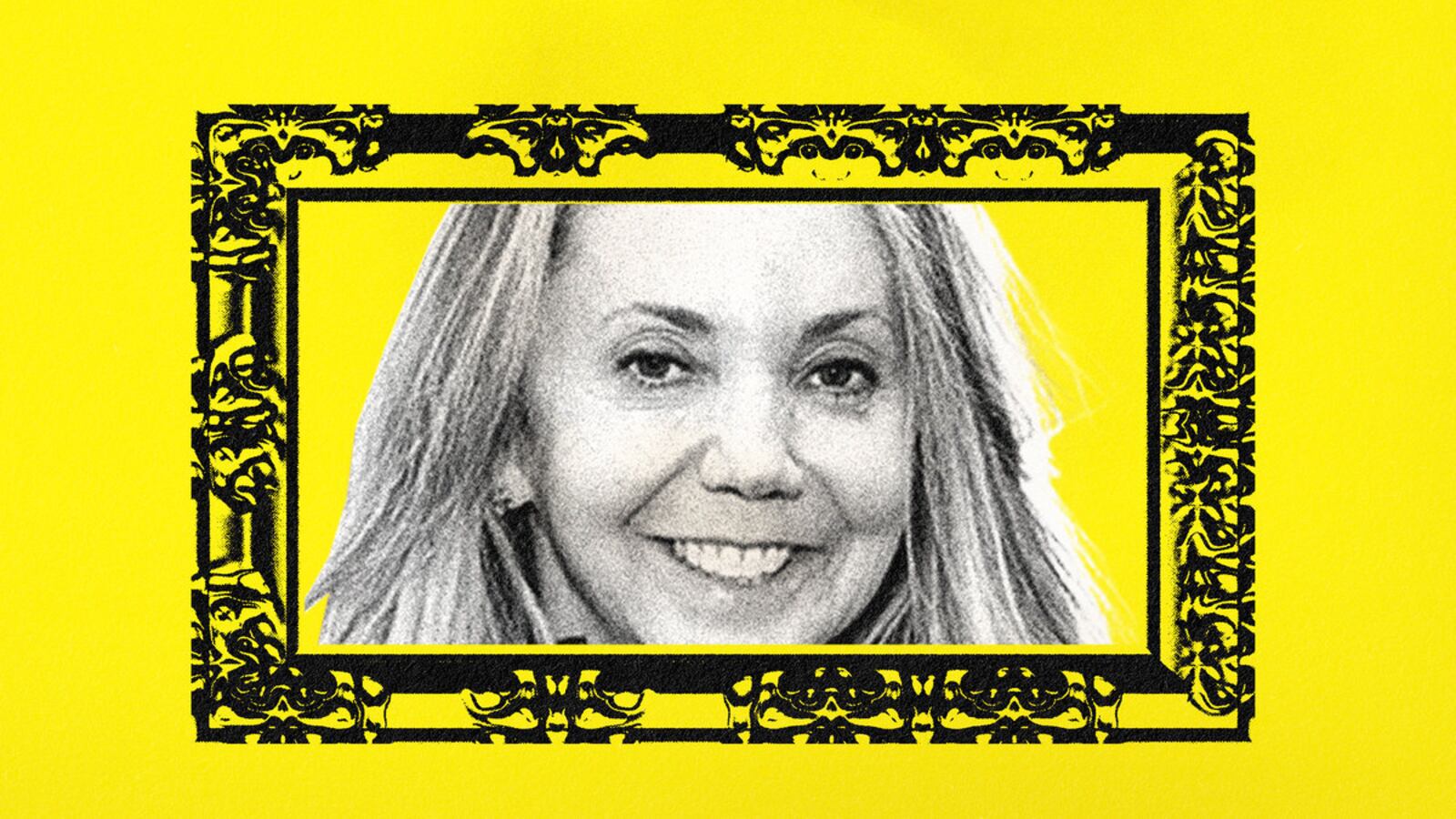Art adviser Lisa Schiff has made a career cutting deals for the rich and famous. Her client list has included Leonardo DiCaprio, and Young Paris once serenaded her at Art Basel. She’s been quoted and featured with regularity in the media, including The New York Times, Architectural Digest, and CNN.
But now some ugly accusations about how she finances her high-flying lifestyle threaten to shatter her image.
Two clients who were once her very close friends filed a lawsuit in New York Supreme Court on Thursday, claiming that Schiff has been “running a Ponzi scheme.” The real-estate heiress Candace Barasch and Richard Grossman alleged that the Tribeca art buyer failed to pay them $1.8 million from the sale of a contemporary painting.
According to the complaint, around New Year’s, Schiff brokered the sale of Adrian Ghenie’s The Uncle 3 at Sotheby’s in Hong Kong for $2.5 million. But, they say, they still haven’t received the bulk of the money. Their complaint outlined five allegations of financial misconduct, including fraud, conspiracy, and breach of contract.
Grossman’s spouse and Barasch have known Schiff for nearly two decades, the suit said, and developed quasi-familial bonds. The Grossmans say they went to the bris of Schiff’s son and attended Father’s Day events at his school as “adjunct parents”; the two families even took trips together.

Candace Barasch and Lisa Schiff in happier times.
Sylvain Gaboury/GettyLikewise, Barasch also traveled with Schiff. It was during these trips that she witnessed Schiff’s “lavish lifestyle” up close, the lawsuit claims. “Barasch regularly observed Schiff spending tens of thousands of dollars at a time on couture clothing and accessories, and making jewelry purchases of $20,000 at a time,” the complaint says. It further accused Schiff and her companies of using money obtained from clients to pay for limo rides, five-star trips, and “shopping sprees in New York and London.”
Schiff pays roughly $25,000 per month for her apartment in New York, the plaintiffs claimed, and tens of thousands of dollars for multiple offices. She also “rents a luxury apartment in the legendary Colonial House Apartment complex in West Hollywood—where Bette Davis once lived,” they said.
Schiff did not answer phone calls from The Daily Beast or respond to two text messages; it is not clear if she has an attorney. The plaintiffs’ attorney, Wendy Lindstrom, said in a statement, "It is disheartening that someone who professed transparency and integrity was at the same time stealing from her own clients."
According to the complaint, the plaintiffs jointly acquired The Uncle 3 in the first half of April 2021. The next year they decided to put the oil painting up for auction. Schiff was supposed to take a 10 percent cut; half of the remaining balance was supposed to go to Barasch, while Grossman and his spouse were supposed to receive a quarter of the proceeds apiece.
Following the sale, Schiff promptly took her commission, the lawsuit stated, and transferred $450,000 in total to the plaintiffs. She allegedly promised to pony up the other $1.8 million by March 26. Schiff then asked for a month-long extension, followed by an additional request to delay payment, the plaintiffs said.
The filing claimed that Richard Grossman needed his cut of the sale of the Ghenie painting to help transfer his hospitalized in-laws to an assisted-living facility.
On May 8, Grossman’s spouse confronted Schiff in person and received an unwelcome surprise: “Schiff told him she did not have the money owed to Plaintiffs, and to call her attorney—and then walked away from him,” the lawsuit alleged.
Grossman’s spouse tried to relay the news to Barasch but accidentally texted Schiff instead. According to Thursday’s filing, Schiff replied, in part, “I am sorry and have every intention to make things right… It’s just complicated… I know you will never speak to me again but I will try to make it right regardless.”
The plaintiffs said they are doubly outraged given Schiff’s former statements to the press. The art market is “such a complex world, and very opaque,” she told The Financial Times in 2017. “When people come in, they often leave quickly because they feel threatened, make mistakes, or they’re taken advantage of. So I’m trying to help people understand.”
Schiff and her companies, the lawsuit noted, sometimes purchased art on their own and then sold the pieces to clients. Last year, a New York Times reporter asked Schiff about another element of complexity in her business, saying “You’re an art adviser, but you also sell art that your clients own. Isn’t that a conflict of interest?” Schiff replied that she treats those two services “as very different businesses…I can’t offer my clients’ things to my other clients, because then I’m representing both sides. You have to be transparent.”.
In 2019, in another article in the Times, Barasch discussed her extensive collaborations with Schiff. At the time, they had amassed a collection of “some 600 pieces,” the story said, and they went to great pains each year to modify the way the art was displayed in Barasch’s apartment.
Schiff, Barasch said, was her “partner in crime.”








